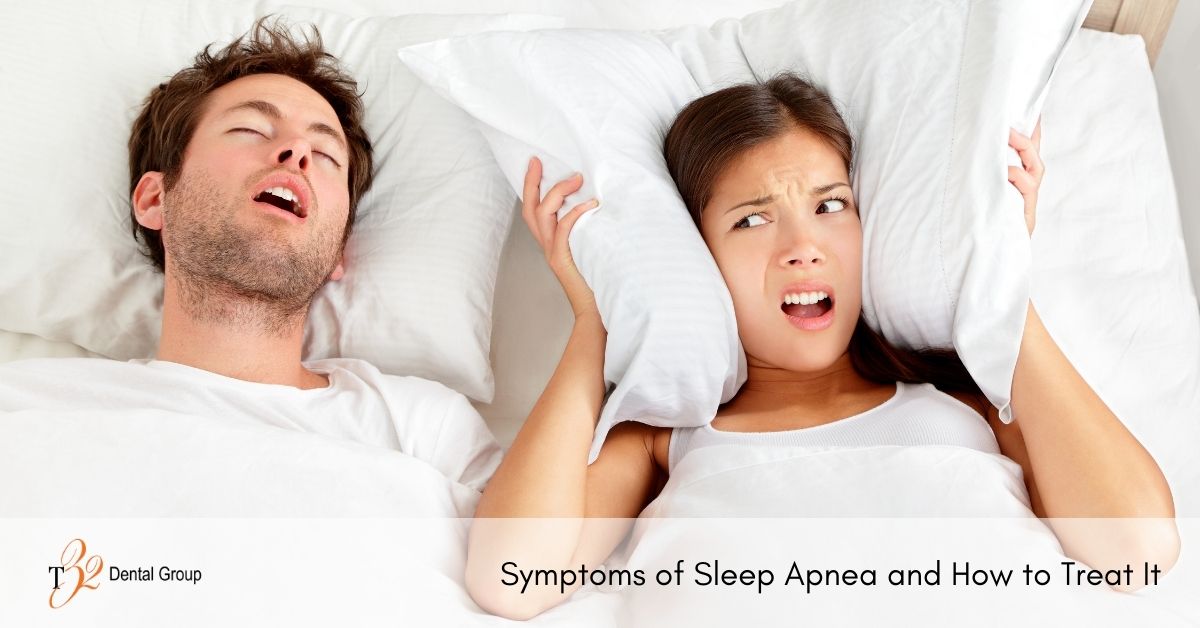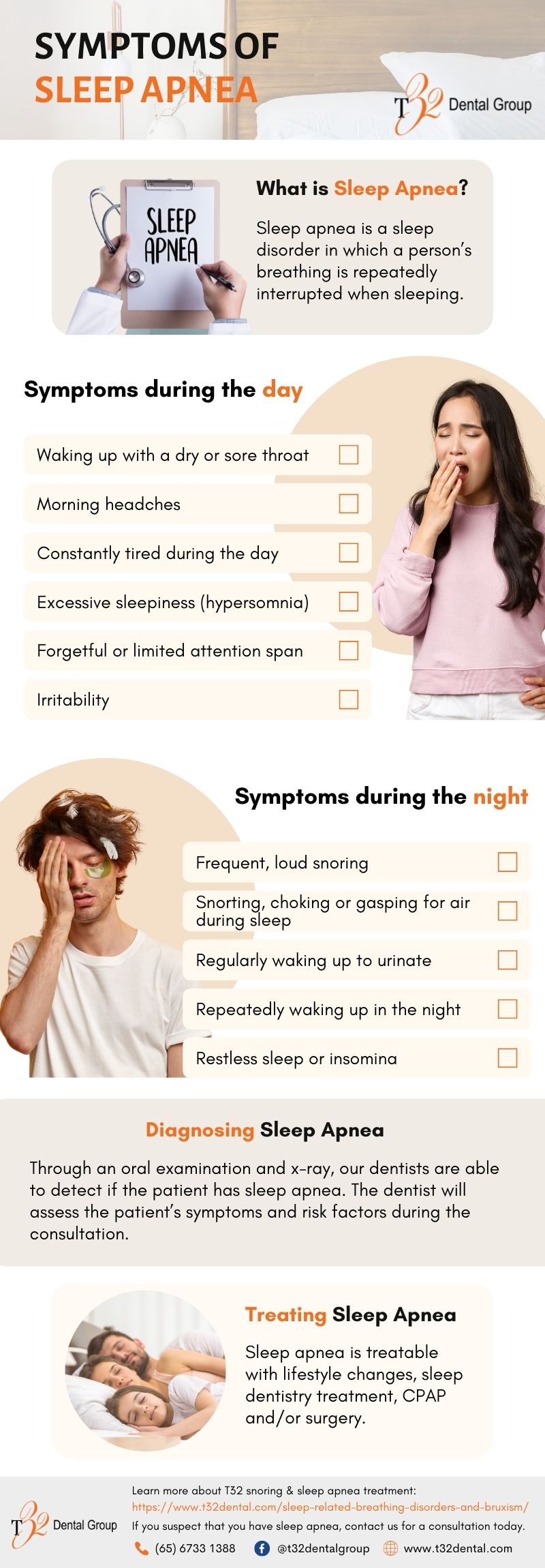
Sleep apnea is a sleep disorder in which a person’s breathing is repeatedly interrupted when sleeping. It will cause the person to stop breathing many times during the sleep, resulting in a lack of oxygen and an overall low-quality rest.
Other than feeling tired in the day, untreated sleep apnea can result in many health complications. These include depression, hypertension, diabetes, and cardiovascular diseases (heart attack, stroke, atrial fibrillation).
Due to the potential health impact sleep apnea brings, it is important to know the symptoms and when to seek professional help.
Symptoms of Sleep Apnea
Symptoms of sleep apnea differ for each person. As some of the symptoms are only prominent during sleep, it will be hard to identify alone and will require help from another person.
Symptoms during the day:
- Waking up with a dry or sore throat due to constant breathing through the mouth
- Morning headaches
- Constantly tired during the day
- Excessive sleepiness during the day (hypersomnia), even after a full night’s sleep
- Forgetful, limited attention span or have difficulty thinking clearly
- Irritability
Symptoms during the night:
- Frequent, loud snoring
- Snorting, choking or gasping for air during sleep
- Regularly waking up in the night to urinate (nocturia)
- Repeatedly waking up in the night, restless sleep or insomnia
If you relate to any of symptoms above, you may be suffering from sleep apnea. To confirm, you can undergo a sleep test with a professional.
Diagnosing Sleep Apnea
Through an oral examination and x-ray, our dentists are able to detect if the patient has sleep apnea. The dentist will assess the patient’s symptoms and risk factors during the consultation.
The dentist will then refer the patient to perform sleep test. This can be done through a polysomnography (PSG) at a sleep centre or a simple test at home. This sleep study or report will be reported by a Sleep trained ENT or Sleep Physician.
The sleep test will examine:
- Number of sleep apnea events (AHI)
- Level of muscle activities relating to the breathing (Reras)
- Amount of heart and brain activities
- Blood oxygen level throughout the night
If diagnosed with sleep apnea, the severity of the condition can be determined based on the number of sleep apnea events per hour of sleep.
Sleep apnea is treatable with lifestyle changes, sleep dentistry treatment, CPAP and/or surgery.
Treating Sleep Apnea
Patients suffering from sleep apnea will need to make changes to their lifestyles to improve their quality of sleep. For most patients, additional treatment is required to help keep their airways open during sleep.
There are many treatment options for sleep apnea and a suitable treatment will be advised depending on the severity of the condition. Possible treatments include the use of oral appliance, continuous positive airway pressure (CPAP) therapy and surgery.
Lifestyle Changes for Sleep Apnea Patients
Making lifestyle changes can help improve symptoms of sleep apnea.
Possible changes include:
- Maintaining a healthy weight
- Following a healthy diet plan
- Exercise regularly
- Avoid alcohol and smoking
- Altering sleeping position
To know the lifestyle changes that can benefit your condition, it is best to seek advice from a professional.
Using Oral Appliance
Customised oral appliances such as mandibular advancement device (MAD) and tongue retaining device can be used to treat mild to moderate cases of sleep apnea. The appliance will be worn at night to maintain the patency airway during sleep.
A mandibular advancement device (MAD) looks similar to an orthodontic retainer and a tongue retaining device is a splint that holds the tongue in place.
Continuous positive airway pressure (CPAP) therapy
Continuous positive airway pressure (CPAP) therapy is a commonly used especially to manage severe cases of sleep apnea. Using a CPAP device, the patient will wear a mask over the nose that will keep the airway open during sleep by providing a constant stream of positive airflow pressure.
Most patients undergoing the therapy will experience an immediate symptom relief and an improvement in their mental and physical wellbeing.
However, this is a life-long therapy.
Surgery
Surgery is usually suggested only when other suitable treatment options are exhausted with little effect. Depending on the condition, possible surgeries may include removal of tissues in the airway turbinates, sinuses or retropharyngeal area or jaw repositioning.
Consult Snoring and Sleep Apnea at T32 Dental
At T32 Dental, we are fully committed to being a comprehensive dental practice with specialists and dental surgeons to take care of your dental health wellness.
We collaborate with specialized ENT and sleep medicine physicians to develop a treatment plan that will be most effective for your sleep apnea condition.
If you suspect that you have sleep apnea, contact us for a consultation today.
T32 Book An Appointment - Snoring Treatment @ Camden
Reviewed by Dr Bruce Lee

